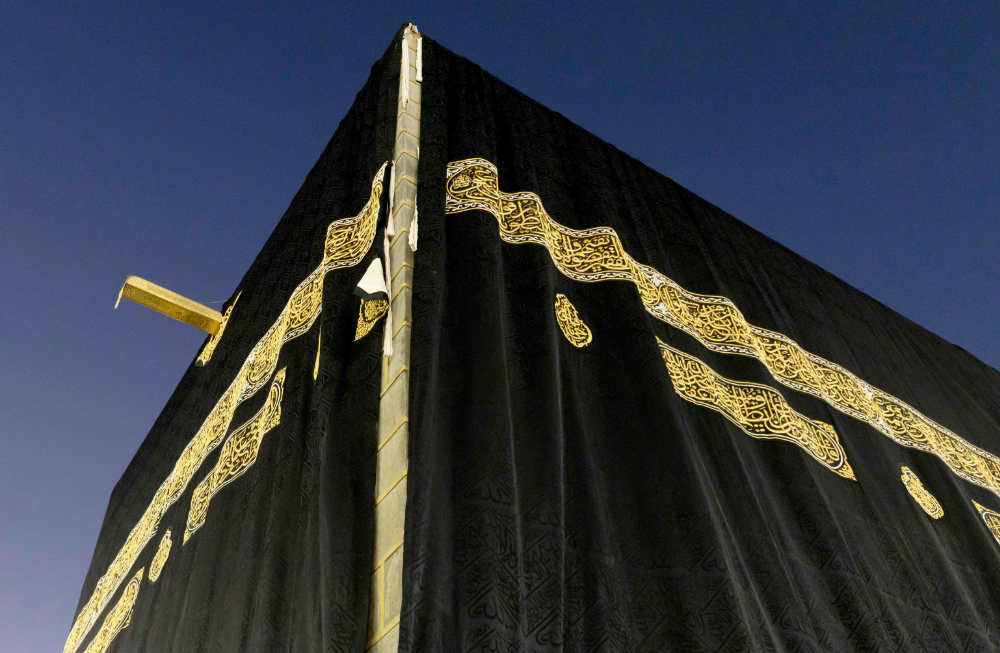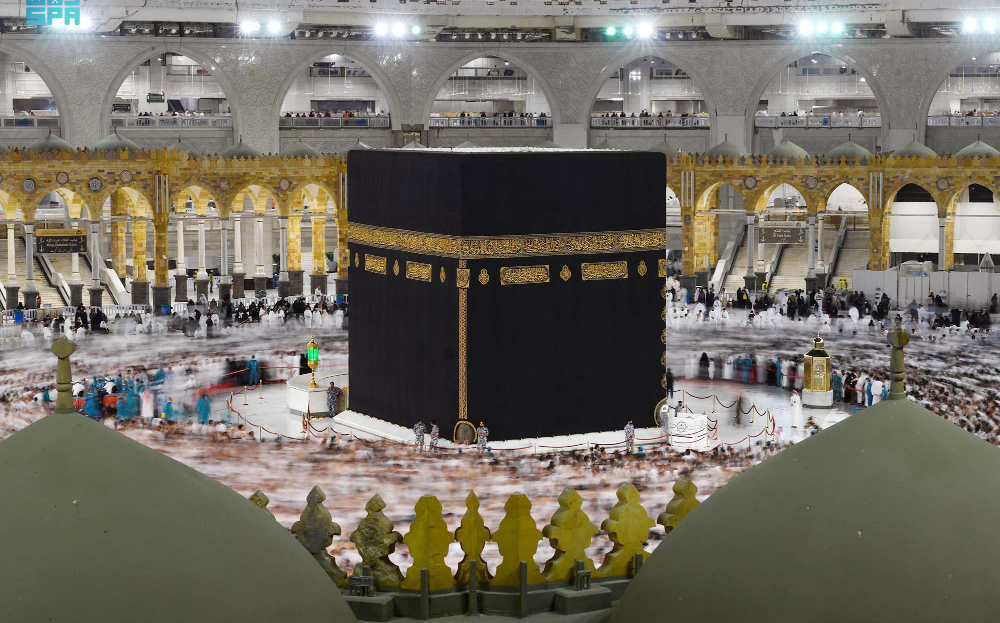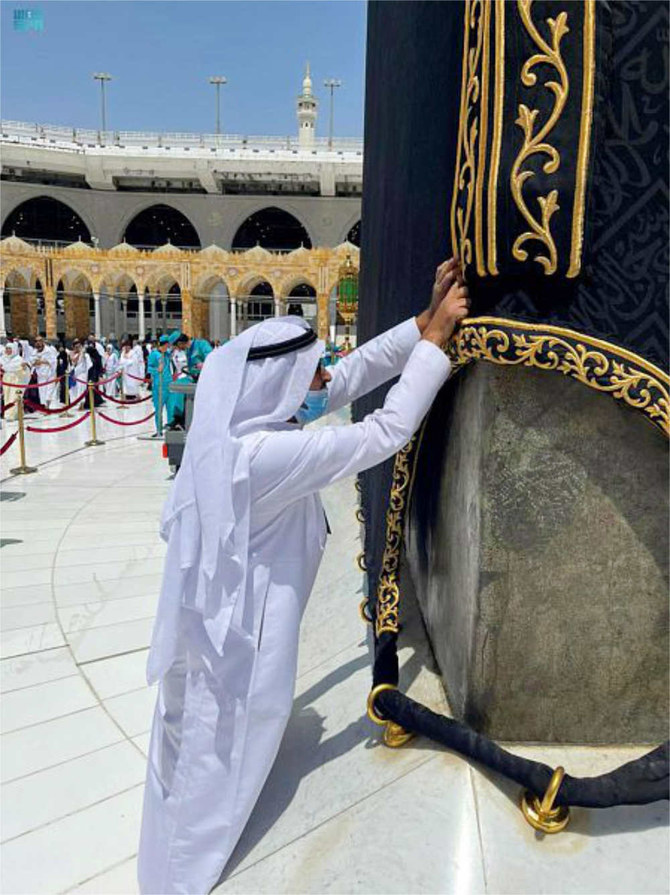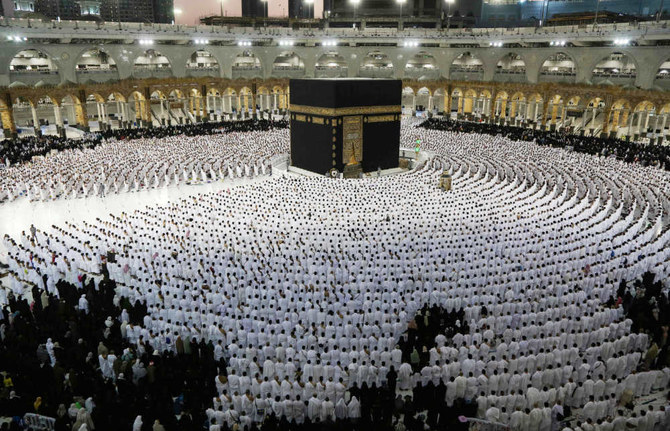MAKKAH: The Grand Mosque’s Kiswa Maintenance Department said that it has carried out work recently to maintain the Kiswa that covers the Kaaba, fix its edges and tighten the belt that surrounds it, to help ensure it looks its best during Ramadan.
The department’s director, Fahd Al-Jabiri, said: “This comes as part of the periodic work undertaken by the unit charged with taking care of the Kaaba’s Kiswa. It is carried out in accordance with a fixed program that is implemented through the Kaaba’s comprehensive maintenance and cleaning processes throughout the year.”
This comes as part of the periodic work undertaken by the unit charged with taking care of the Kaaba’s Kiswa. It is carried out in accordance with a fixed program that is implemented through the Kaaba’s comprehensive maintenance and cleaning processes throughout the year.
Fahd Al-Jabiri, Department director
Based on the department’s operational and technical plan, he added, the Kiswa is checked on a daily basis and maintained by a specialized Saudi team “with the experience of some of its members exceeding 26 years. The team charged with this task inspects all of the Kiswa’s parts as well as the rings keeping it in place.”
Describing the most recent work, Al-Jabiri said: “The team of specialists and technicians organized the work and set the priorities based on the adopted plan. It started by tightening the Kiswa on the rings and the rope in preparation for the holy month of Ramadan, because the Kiswa requires tightening, maintenance and cleaning.
“It also maintained the frames of the Black Stone, Al-Hajar Al-Aswad, and Rukn Al-Yamani. All of the technical team’s members are keen to apply the highest standards of accuracy, quality, performance and completion within a record time in order to finish the task while complying with the preventive measures to ensure everyone’s safety.”
ALSO READ: Books that depict the beauty and history of Islam
He said that the maintenance department, which is affiliated with the General Presidency for the Affairs of the Two Holy Mosques, makes use of the latest technology and the finest materials during work to maintain the Kiswa “due to the attention and care given by King Salman and Crown Prince Mohammed bin Salman to the Two Holy Mosques and their visitors.”
During the era of the First Saudi State, the Kiswa received great attention. It was imported from Egypt for many centuries, a tradition that only ended in 1925. At that time King Abdulaziz ordered the establishment of a factory in Ajyad district, near the Grand Mosque, to weave the Kiswa. It was the first such facility dedicated to the task in the Hijaz region.
BACKGROUND
During the era of the First Saudi State, the Kiswa received great attention. It was imported from Egypt for many centuries, a tradition that only ended in 1925. At that time King Abdulaziz ordered the establishment of a factory in Ajyad district, near the Grand Mosque, to weave the Kiswa. It was the first such facility dedicated to the task in the Hijaz region.
King Abdulaziz, and later his sons, continued to oversee and direct the manufacture and development of the Kiswa. In March 1977, the factory was moved to new premises in the Umm Al-Joud district of Makkah. It was equipped with the most advanced machines available at the time and it continues to manufacture the Kiswa to this day.
In May 2017, King Salman issued an order to change the factory’s name to the King Abdulaziz Complex for Holy Kaaba Kiswa.

The complex has its own desalination division tasked with maintaining the quality of the water used during the production process, which is a vital component that affects the quality and texture of the silk. It desalinates the groundwater used in the washing and dying process, ensuring that the total dissolved solids ratio does not exceed one part per million.
The complex also has its own dyeing division, which first removes a protein layer known as sericin from the silk threads. The silk is then dyed black and green in hot pools of special chemicals that are carefully measured and mixed to achieve the desired colors. The outer cover is dyed black, and the inner cover is dyed green.

















